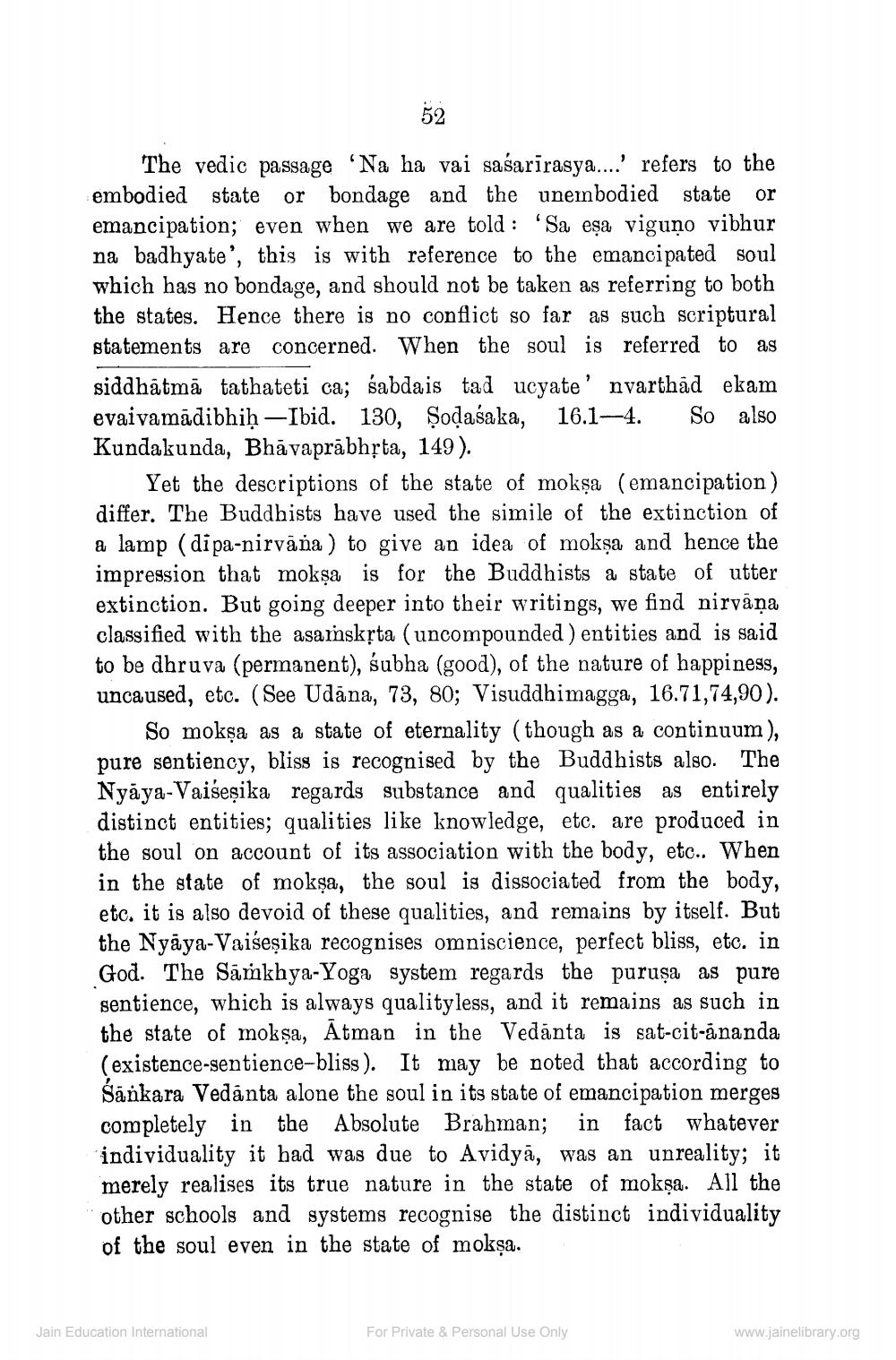________________
52
The vedic passage 'Na ha vai sasarīrasya....' refers to the embodied state or bondage and the unembodied state or emancipation; even when we are told: 'Sa eşa viguno vibhur na badhyate', this is with reference to the emancipated soul which has no bondage, and should not be taken as referring to both the states. Hence there is no conflict so far as such scriptural statements are concerned. When the soul is referred to as siddhātmā tathateti ca; sabdais tad ucyate' nvarthad ekam evaivamadibhiḥ-Ibid. 130, Soḍaśaka, 16.1-4. So also Kundakunda, Bhavaprabhṛta, 149).
Yet the descriptions of the state of mokṣa (emancipation) differ. The Buddhists have used the simile of the extinction of a lamp (dipa-nirvana) to give an idea of moksa and hence the impression that mokṣa is for the Buddhists a state of utter extinction. But going deeper into their writings, we find nirvaṇa classified with the asamskṛta (uncompounded) entities and is said to be dhruva (permanent), subha (good), of the nature of happiness, uncaused, etc. (See Udana, 73, 80; Visuddhimagga, 16.71,74,90).
So mokṣa as a state of eternality (though as a continuum), pure sentiency, bliss is recognised by the Buddhists also. The Nyaya-Vaiseṣika regards substance and qualities as entirely distinct entities; qualities like knowledge, etc. are produced in the soul on account of its association with the body, etc.. When in the state of moksa, the soul is dissociated from the body, etc. it is also devoid of these qualities, and remains by itself. But the Nyaya-Vaiseṣika recognises omniscience, perfect bliss, etc. in God. The Samkhya-Yoga system regards the puruşa as pure sentience, which is always quality less, and it remains as such in the state of mokṣa, Atman in the Vedanta is sat-cit-ananda (existence-sentience-bliss). It may be noted that according to Sankara Vedanta alone the soul in its state of emancipation merges completely in the Absolute Brahman; in fact whatever individuality it had was due to Avidya, was an unreality; it merely realises its true nature in the state of mokṣa. All the other schools and systems recognise the distinct individuality of the soul even in the state of mokṣa.
Jain Education International
For Private & Personal Use Only
www.jainelibrary.org




